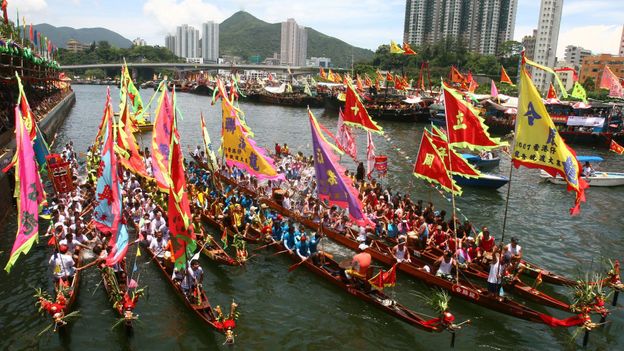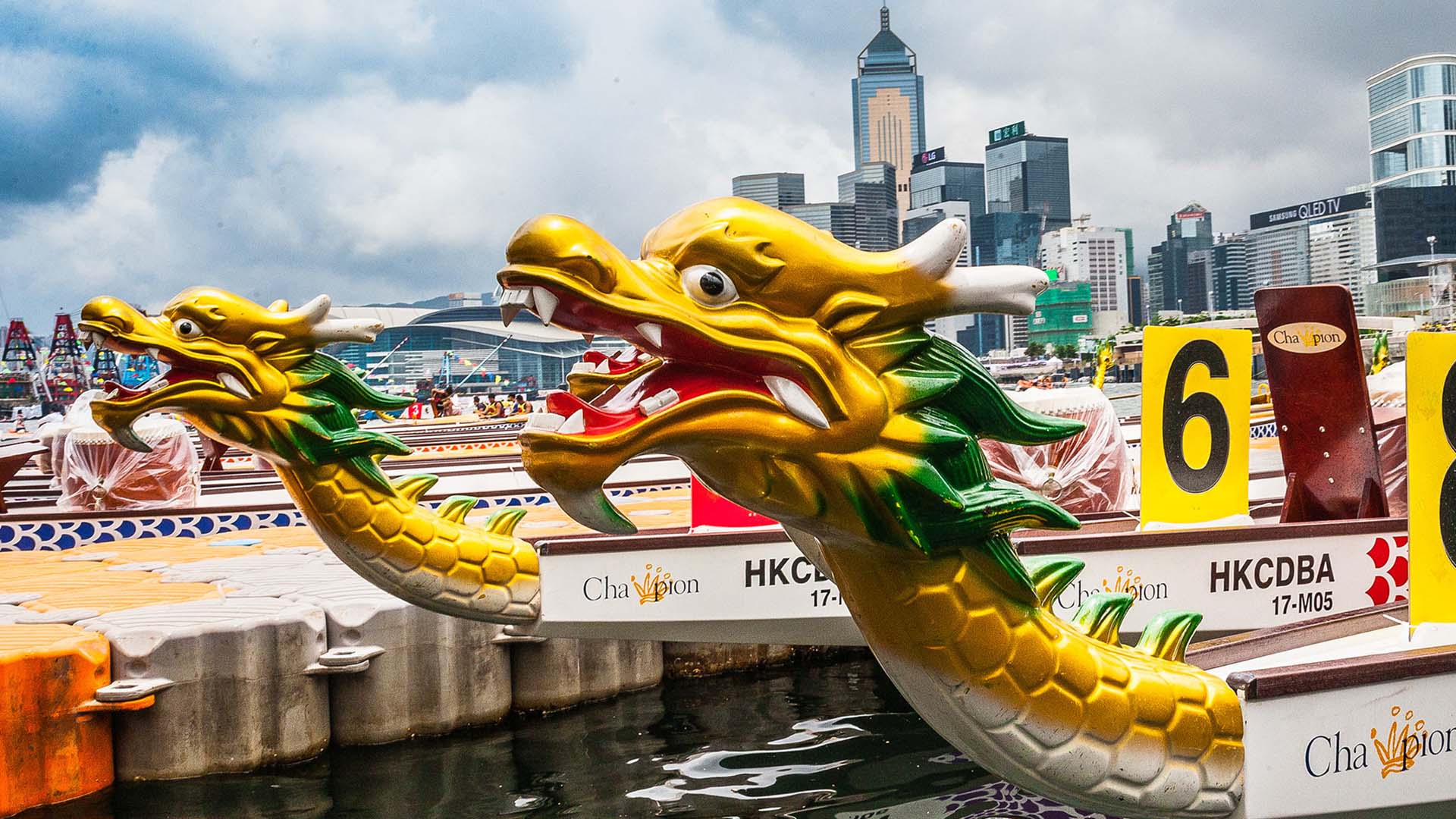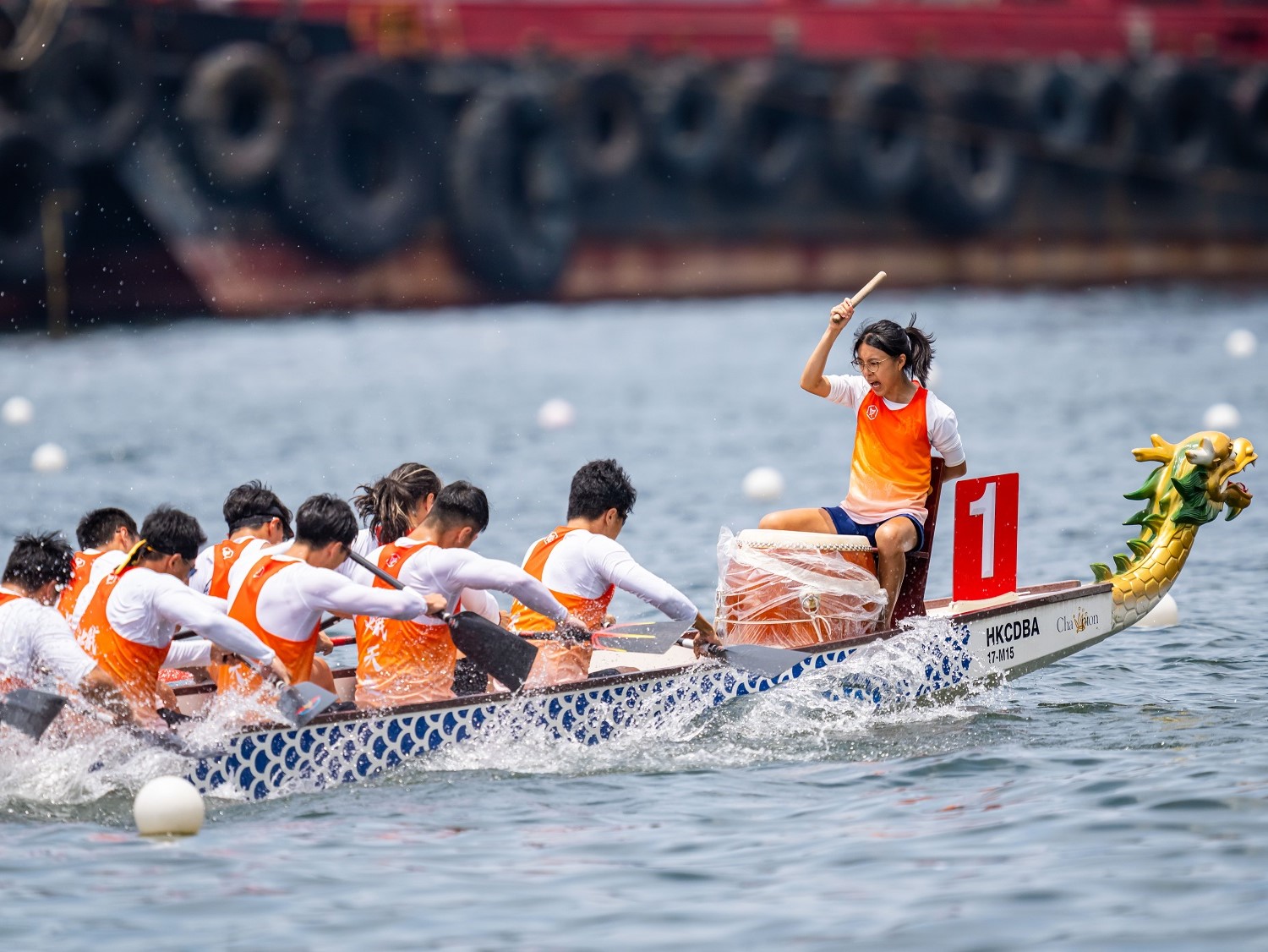# Experiencing Hong Kong Dragon Boat Festival’s Vibrant Traditions

Imagine the rhythmic drumming echoing across Hong Kong’s vibrant harbors, teams of paddlers racing sleek dragon boats under a summer sun, and the air filled with the scent of steaming *zongzi*—these are the hallmarks of the Hong Kong Dragon Boat Festival. As a cornerstone of Hong Kong cultural events, this annual celebration offers travelers an immersive dive into the city’s rich heritage, blending ancient rituals with modern flair. Whether you’re a first-time visitor to Hong Kong or a seasoned explorer of Chinese traditions, this festival is a must-experience event that captures the essence of “Dragon Boat Festival Hong Kong.” Here at jusha.travel, we love sharing tips to make your China journey unforgettable, and this guide will equip you with practical Hong Kong travel tips and insights into Hong Kong cultural experiences that go beyond the surface. For more on Chinese festivals, check out https://jusha.travel/exploring-chinese-festivals-culture/.
## The Ancient Origins and Mythology of Hong Kong Dragon Boat

The Hong Kong Dragon Boat Festival traces its roots back thousands of years, rooted in the mystical world of ancient Chinese folklore and rituals. For those exploring a Hong Kong travel guide, understanding this backstory adds depth to your adventure, revealing how “Hong Kong Dragon Boat” traditions have evolved from spiritual practices to global spectacles. According to historical accounts from sources like [The Dragon Boat Festival | Complete History & Guide](https://dragonboat.house/blogs/news/dragon-boat-festival), the festival originated from early dragon worship among fishing communities, where dragons were revered as guardians of rivers and seas. These deities were believed to influence weather patterns and bountiful harvests, making the festival a time of appeasement and celebration.
A key legend tied to the event is the story of Qu Yuan, a loyal poet and official from the Warring States period who drowned himself in protest against corruption. Locals raced boats to “rescue” his spirit, a practice that has transformed into the competitive races we see today. This tale not only highlights themes of valor and sacrifice but also underscores the festival’s role in Hong Kong cultural experiences, fostering community spirit and resilience. For deeper insights on Chinese customs, visit https://jusha.travel/understanding-chinese-customs-etiquette/.
As you plan your Hong Kong travel tips for the festival, consider visiting sites like the HK Maritime Museum, which delves into these origins, as detailed in [The Dragon Boat Legend on Google Arts & Culture](https://artsandculture.google.com/story/the-dragon-boat-legend-hk-maritime-museum/CwVxwG2VdR6NLw?hl=en). The event also incorporates ancient rituals for warding off evil and ensuring good health as summer begins, blending mythology with practical Hong Kong cultural events that resonate with modern travelers curious about China’s diverse heritage.
## Thrilling Traditions and Festivities in Hong Kong Dragon Boat

No discussion of “Dragon Boat Festival Hong Kong” is complete without diving into the heart-pounding action of the races themselves, a staple of Hong Kong cultural events that attract locals and international visitors alike. The Hong Kong Dragon Boat races feature intricately carved boats, each manned by teams of up to 20–90 paddlers, with a drummer setting the pace amid cheers from the crowds. For a Hong Kong travel guide, this is an ideal opportunity to witness the fusion of athleticism and tradition, as outlined in https://jusha.travel/exploring-chinese-festivals-culture/.
The most iconic event is the Hong Kong International Dragon Boat Races, held annually on the Tsim Sha Tsui waterfront since 1976. This competition draws teams from around the world, turning the harbor into a vibrant arena of speed and strategy. Beyond the main event, smaller races in neighborhoods like Stanley, Aberdeen, Sha Tin, and Tai O offer a more intimate glimpse into local customs. In Tai O, for instance, the Dragon Boat Water Parade stands out, featuring ceremonial processions of deity statues and earning recognition as an intangible cultural heritage.
As part of your Hong Kong travel tips, arrive early to secure a spot along the waterfront, pack sunscreen, and consider joining a spectator boat for an up-close view. These festivities not only celebrate physical prowess but also embody the communal bonds that define Hong Kong cultural experiences, making them perfect for travelers seeking authentic China adventures.
## Delving into Cultural Rituals and Symbolic Foods

One of the most delightful récente of the Hong Kong Dragon Boat Festival is its emphasis on sensory experiences, from the visual spectacle of parades to the mouthwatering flavors of traditional foods—key elements of Hong Kong cultural experiences that tie into broader Chinese culinary traditions. As per https://jusha.travel/how-to-savor-authentic-dim-sum-in-hong-kongs-best-spots/, the festival’s rituals and cuisine provide a window into China’s rich gastronomic heritage, offering travelers practical Hong Kong travel tips for an engaging visit.
Central to the celebrations is *zongzi*, the glutinous rice dumplings wrapped in bamboo leaves and filled with savory delights like marinated pork belly, salted egg yolk, mushrooms, and dried scallops. In Hong Kong, these treats, https://jusha.travel/exploring-chinese-festivals-culture/, symbolize protection and prosperity, and sampling them at local markets or eateries is a must-do activity. For a deeper cultural dive, explore historic fishing villages like Tai O, where associations row to temples for water parades and rituals honoring water spirits, as described in [Dragon Boat Festival in Hong Kong: origin, traditions and festivities](https://www.discoverhongkong.com/us/explore/culture/dragon-boat-featival-fun-facts-and-festivities.html).
These rituals, including offerings and blessings, highlight the festival’s role in warding off misfortune and promoting community harmony. As you plan your Hong Kong Dragon Boat itinerary, consider attending a *zongzi*-making workshop or joining a cultural tour—these experiences not only satisfy your taste buds but also enrich your understanding of Chinese customs, aligning perfectly with jusha.travel’s mission to inspire travelers through authentic insights.
## The Modern Evolution of Hong Kong Dragon Boat
While the Hong Kong Dragon Boat Festival honors ancient traditions, it has seamlessly adapted to contemporary life, making it a dynamic part of Hong Kong cultural events that appeals to modern travelers. Today, what was once a localized ritual has evolved into an inclusive spectacle that blends competition with global participation, as noted in https://jusha.travel/exploring-chinese-festivals-culture/.
International teams now compete alongside local crews, showcasing Hong Kong’s multicultural energy and its position as a bridge between East and West. This evolution reflects broader trends in China, where technology and innovation enhance traditional events—for instance, apps and virtual reality experiences https://jusha.travel/whats-new-in-chinas-tech-scene-innovations-to-see-in-2025/ allow remote viewers to “join” the races, providing Hong Kong travel tips for digital-savvy explorers. The festival’s themes of valor and community protection remain intact, but events like corporate team-building races and family-friendly activities make it accessible to all.
For Hong Kong travel guide enthusiasts, this modernization means more opportunities for immersive experiences, such as themed festivals in urban parks or eco-friendly initiatives that promote sustainability. It’s a testament to how “Hong Kong Dragon Boat” traditions continue to thrive, offering fresh perspectives on Chinese culture for those eager to explore.
In conclusion, the Hong Kong Dragon Boat Festival is more than just a race—it’s a vibrant tapestry of history, culture, and community that encapsulates the spirit of “Dragon Boat Festival Hong Kong.” From the mythological origins and thrilling races to the savory rituals and modern adaptations, this event provides invaluable Hong Kong travel tips and cultural insights that inspire deeper appreciation for China’s diverse heritage. Here at jusha.travel, we’re passionate about guiding visitors like you to unforgettable experiences across China, and we hope this guide has sparked your wanderlust. For more Hong Kong cultural experiences, check out https://jusha.travel/how-to-savor-authentic-dim-sum-in-hong-kongs-best-spots/.
We’d love to hear about your own Hong Kong cultural experiences—have you witnessed a dragon boat race or tried making *zongzi*? Share your stories in the comments below, visit jusha.travel for more China travel inspiration, or explore related articles like our guides to other Hong Kong cultural events. Safe travels and happy exploring!
